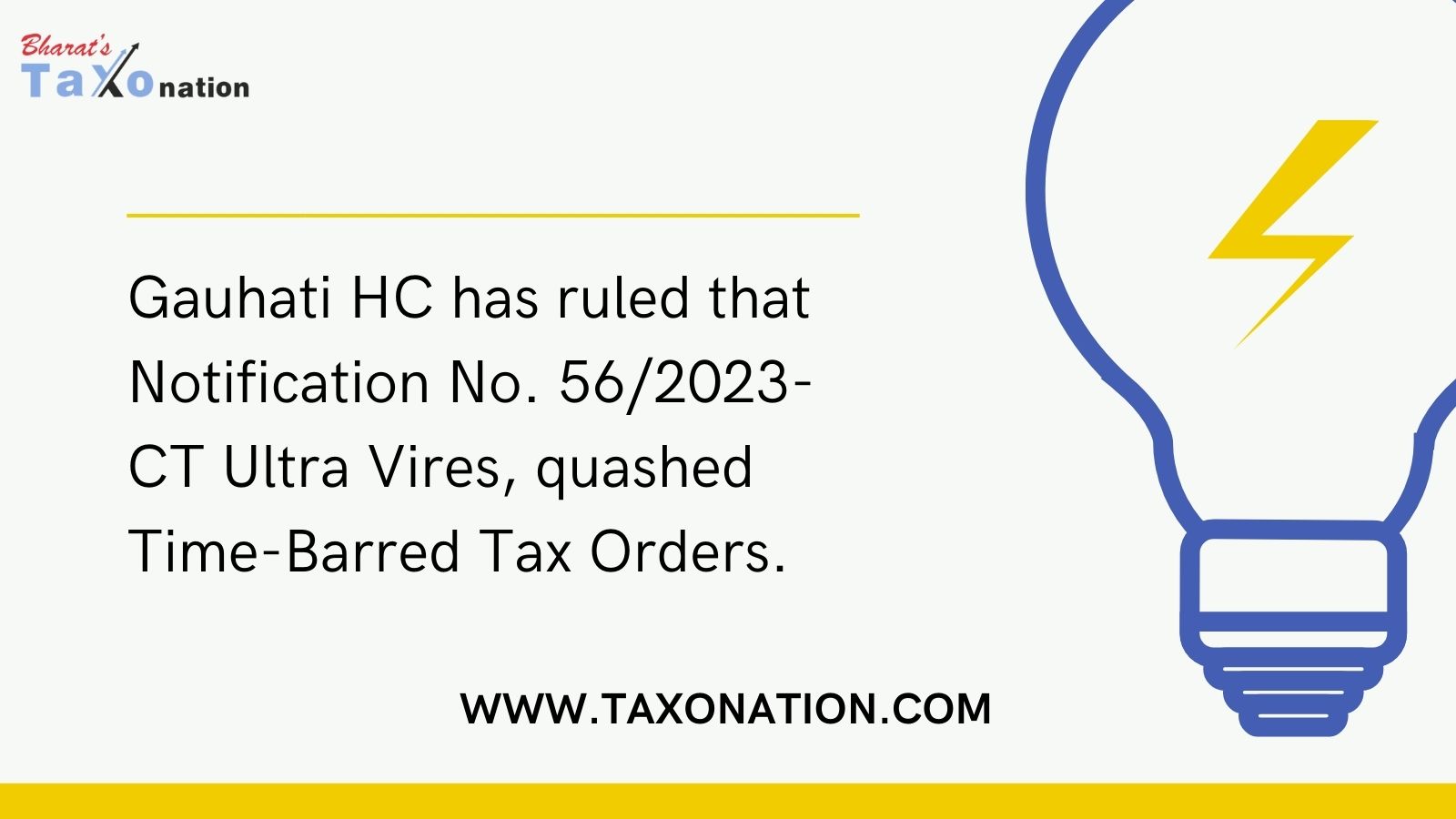
In the recent batch of writ petitions, several legal challenges were posed against GST orders issued under Section 73(9) of the Central Goods and Services Tax (CGST) Act and Assam Goods and Services Tax (SGST) Act. These challenges were primarily focused on the legality of two notifications—Notification No. 9/2023-CT and Notification No. 56/2023-CT—issued by the Central Government, extending the timeline for passing GST orders. The petitioners argued that these notifications were ultra vires, meaning they exceeded the powers granted under the respective GST Acts.
Key Legal Issues Raised:
Ultra Vires Extension of Timelines: The petitioners contended that both notifications violated Section 168A of the CGST Act, which only allows the government to extend deadlines under special circumstances such as a "force majeure" event (natural disasters, pandemics, etc.). They argued that no such force majeure existed at the time of issuing the notifications, rendering the extension illegitimate.
Lack of GST Council Recommendations: For both notifications, it was argued that the mandatory recommendation from the GST Council, a body set up under Article 279A of the Constitution to harmonize GST policy between the Union and States, was missing. The petitioners claimed that the Central Government could not lawfully extend the timelines without such a recommendation.
Relevant Constitutional Provisions:
Article 246A: This Article gives both Parliament and State Legislatures concurrent power to make laws related to GST. It highlights the importance of cooperative federalism, wherein both levels of government work in tandem on GST matters.
Article 279A: This Article establishes the GST Council, empowering it to make key recommendations to both the Union and the States on matters of GST law. The role of the GST Council becomes crucial when interpreting whether a recommendation is binding or merely advisory.
Court's Interpretation and Ruling:
The court thoroughly examined the petitioners' claims, focusing on the requirement for the government to base extensions on a GST Council recommendation under Section 168A. The court found that the absence of such recommendations, especially for Notification No. 56/2023-CT, invalidated the extensions granted under the notifications. It was further observed that force majeure conditions, necessary for invoking Section 168A, were not present.
In light of these findings, the court ruled that the orders issued under these notifications were beyond the jurisdiction of the respective tax authorities. Consequently, the orders were quashed, effectively nullifying the extended deadlines for passing GST orders.
GST Case Law Barkataki Print and Media Services versus Union of India
Citation-2024 TAXONATION 2412 (GAUHATI)
CLICK HERE TO READ FULL CASE LAW/DOWNLOAD FROM ABOVE GIVEN PDF OPTION
OR
SUBSCRIBE GST E-LIBRARY (INDIA'S HIGHEST GST CASE LAW DATA)
FOR MORE UPDATE ON GST/ IT JOIN OUR FREE WHATSAPP GROUP BY CLICKING ON THIS LINK https://chat.whatsapp.com/C8VB6F6VHme3A061UDQKhj
Comment: